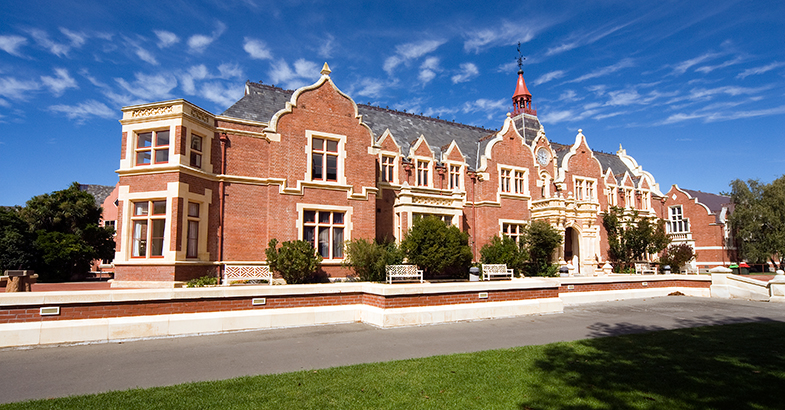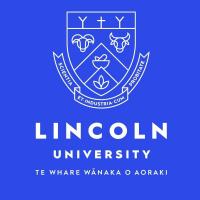Bachelor of Science in Environmental Science
Lincoln University’s Bachelor of Science programme is applied and context-based. We aim to produce graduates who have a firm grounding in the basic sciences. These can be applied to processes in the environment, in ecosystems and biota or at the molecular level; helping you contribute to sustainable management and conservation of land, water and air and the country’s abundant natural resources. This degree has seven majors to choose from, depending on your interest and career aspirations. As our world changes, we need highly skilled individuals who can tackle the big issues. How do we feed the world while minimising environmental impact? How do we protect our environment from biological threats? How do we maintain good environmental quality? These are the pressing questions facing scientists of the future. As a Lincoln B.Sc. graduate, you can help answer them.
DESCRIPTION:
The global environment is facing unprecedented challenges. Climate change, rapidly growing populations and the industrialisation of developing countries are demanding more of our land and water. Scientific understanding, and knowing how to apply that understanding, are essential skills now and their importance will only increase in the future.
Lincoln University has a proud 139-year history of teaching students about working with New Zealand’s natural resources. Located in the country’s biggest agricultural region, Lincoln students are surrounded by an environment that puts them in direct contact with the land and water issues they will face in the future either in NZ or abroad. Students benefit from the lowest student-to-staff ratio of any New Zealand University, and are taught by world-class scientists who are spearheading research into the questions posed by sustainable land use. Lincoln graduates will be ideally placed to work where agricultural production and guardianship of the environment meet. They will play a central role in ensuring sustainability in Canterbury, New Zealand and beyond. New Zealand faces challenges (and opportunities) in increasing economic productivity in land-based industries, while limiting or reducing negative environmental impacts. Sophisticated graduates, who can harness science, technology and management approaches are needed like never before.
A BSc Major in Environmental Science will focus on soil, water and biology in a connected landscape context to help us understand how land use affects the environment and the best practices for mitigating these effects. The Major has a core of courses in fundamental science and environmental topics, such as aquatic and soil science. These courses will teach students about environmental sustainability; the impacts on the environment of different land management practices and how to protect and restore the environment with a view to ensuring its preservation for future generations. The core courses are supported by a collection of elective courses related to the social, economic and legislative framework within which environmental science operates. Students can tailor the course according to the interests they have (and develop while at Lincoln).
Intakes
- Feb
- July
Application Processing Time in Days: 30
Application Process
Minimum English Language Requirements
| English Level Description | IELTS (1.0 -9.0) | TOEFL IBT (0-120) | TOEFL CBT (0-300) | PTE (10-90) | |
|---|---|---|---|---|---|
| Expert | 9 | 120 | 297-300 | 86-90 | |
| Very Good | 8.5 | 115-119 | 280-293 | 83-86 | |
| Very Good | 8 | 110-114 | 270-280 | 79-83 | |
| Good | 7.5 | 102-109 | 253-267 | 73-79 | |
| Good | 7 | 94-101 | 240-253 | 65-73 | |
| Competent | 6.5 | 79-93 | 213-233 | 58-65 | |
| Competent | 6 | 60-78 | 170-210 | 50-58 | |
| Modest | 5.5 | 46-59 | 133-210 | 43-50 | |
| Modest | 5 | 35-45 | 107-133 | 36-43 | |
| Limited | 4 | 32-34 | 97-103 | 30-36 | |
| Extremely Limited | < 4 | < 31 | < 93 | < 30 |
Job Opportunity Potential
The University regularly assesses the job market for new areas of employment demand such as:
- Agriculture and horticulture
- Society, tourism and sport
- Science
- Environment
- Design and technology
- Business and commerce.
Recruitment
We advise on effective ways of connecting with Lincoln students and graduates, and for raising your profile. We offer a range of services to help you:
- NZUniCareerHub to advertise your graduate programmes/vacancies/internships/scholarships to students and graduates
- Targeted email alerts
- Presentations, drop-ins and information sessions on-campus
- Career and networking events
- Poster distribution - electronic and paper (A4 only)
- Interviews on-campus.
PSW Opportunity
- During study, all students on a student visa can work up to 20 hours per week during semester and full time during vacations.
- After completing Level 7 Bachelor’s Degree or Higher Qualification, a student will get a three years open post-study work visa.
- After completing Level 8 Post Graduate courses of 1 year, students get 1 year PSW.
Admission Requirement / Eligibility Criteria
This is New Zealand's University Entrance qualification and is the minimum requirement to qualify for admission to a bachelor degree or to some of our diplomas. To recognise the disruption caused by COVID 19 there are some changes to UE for 2020. To qualify in 2020 you will need:
- NCEA level 3 (i.e. a minimum of 60 credits at level 3 or above plus 20 credits at level 2 or above); and
- A minimum of 12 credits at level 3 or higher in each of three approved subjects (this applies to 2020 only. In other years, 14 credits in each of three approved subjects is required); and
- Literacy – 5 reading credits and 5 writing credits at Level 2 or higher from standards on the NZQA list of university entrance literacy standards; and
- Numeracy – 10 credits from standards on the NZQA list of numeracy standards, or all three of the following unit standards: 26623, 26626, 26627.
For More Information Please Connect Our PSA Counselor
- Course Type: Full Time
- Course Level: Bachelors/UG Degree
- Duration: 03 Year
-
Total Tuition Fee:
95400 NZD
Annual Cost of Living: 20000 NZD
Application Fee: N/A
Similar Programs
- Bachelor of Commerce (Horticulture) at Lincoln University
- Bachelor of Viticulture and Oenology at Lincoln University
- Bachelor of Science (Individual) at Lincoln University
- Bachelor of Science in Food Science at Lincoln University
- Bachelor of Science in Conservation and Ecology at Lincoln University
- Bachelor of Environmental Policy and Planning (Honours) at Lincoln University

